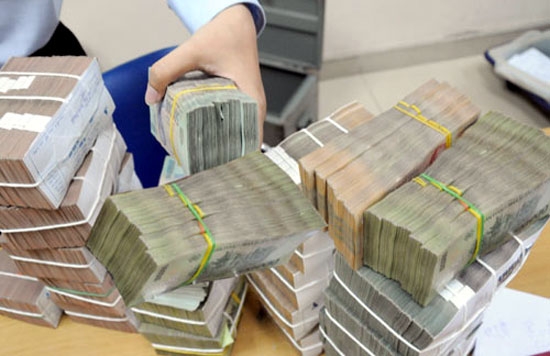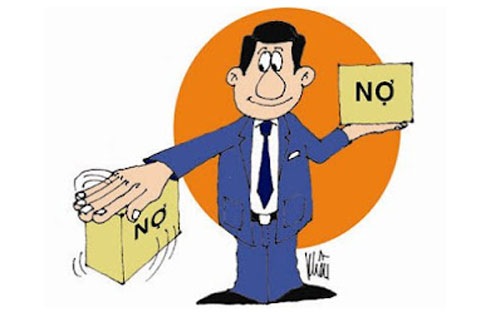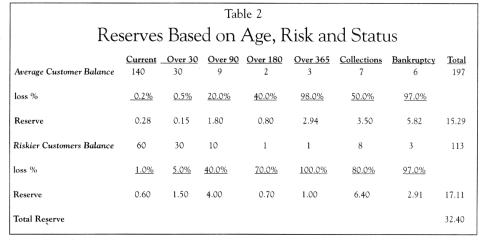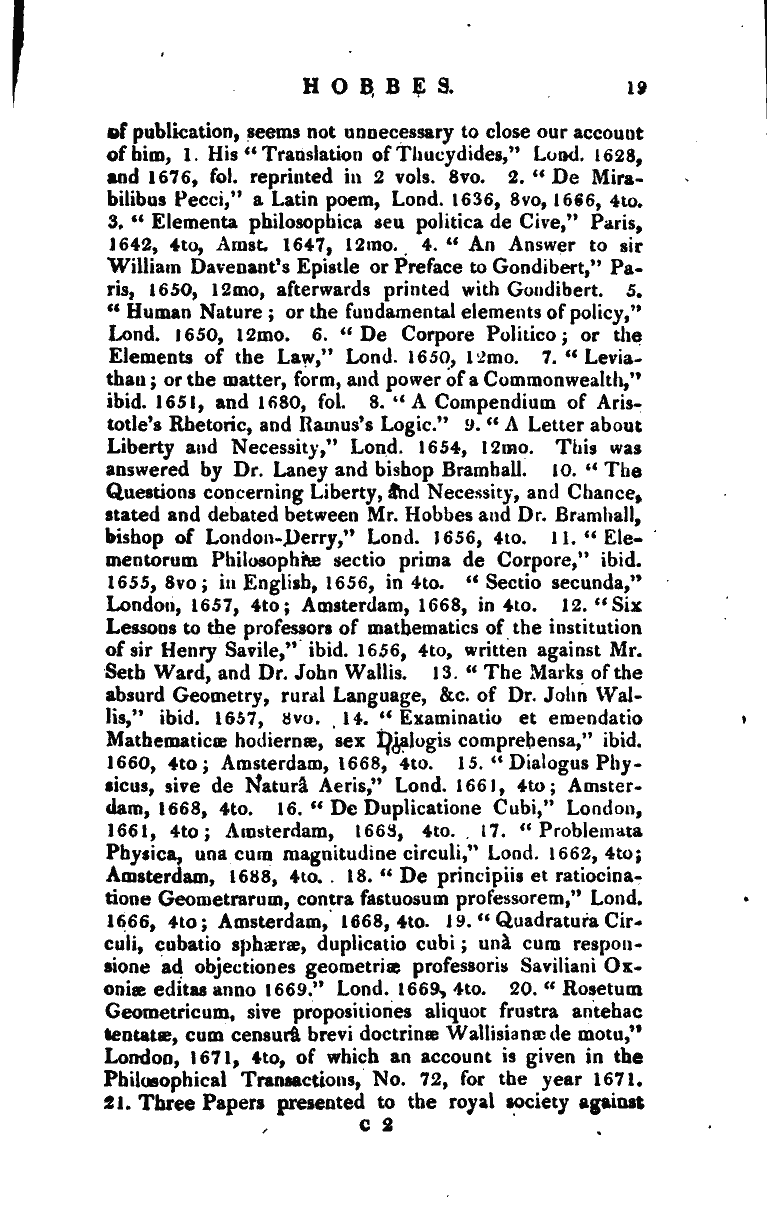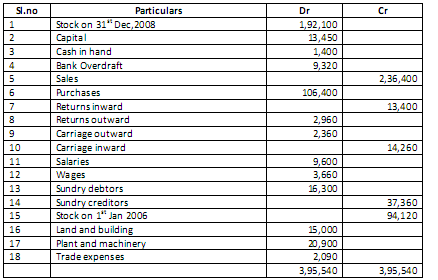"The decadent international but individualistic capitalism, in the hands of which we found ourselves after the war, is not a success.
It is not intelligent, it is not beautiful, it is not just, it is not virtuous--and it doesn't deliver the goods.
In short, we dislike it, and we are beginning to despise it.
But when we wonder what to put in its place, we are extremely perplexed." --John Maynard Keynes (1933)Introduction This is the story of the newly formed Irish Free State and its early economic policies.
It will be argued that the new realities of the Post-World War I economic world exacerbated a steadily declining British economic influence.
In an effort to retain world economic domination, Britain showed its' economic hubris, (a time-honored British trait) by returning to an inflated gold standard in 1925.
In relegating much of its' economic policy to Britain's lead, the new Irish Free State in tying its economy to that of Britain, shared in its fate.
During the 1920's the world economy witnessed a variety of exchange rate policies: America remained on the gold standard throughout 1919-33; some countries (such as Britain, Denmark, Norway and Sweden) left gold during the war or the immediate post-war period, returning to the pre-1913 parity sometime in the mid-1920's; Belgium, France and Italy returned to gold in the 1920's but at a significantly depreciated exchange rate relative to the pre-1913 gold standard rate; others, such as Spain, allowed their currencies to float, never returning to a gold standard in the 1920's.[i]
The pre-1913 Gold Standard was viewed by the major world economic powers as a successful institution for Britain and the world economy in general.
This was an important underlying factor in Britain's desire to return to gold at the pre-war parity price of $4.86.
Many economic historians have viewed the return to gold at this parity price as costly blunder that contributed to the relatively slow economic growth of the UK economy in the "roaring" '20's.
The inter-war experience for Western economic policy makers included diverse exchange rate regimes, free trade becoming increasingly protectionist, mass unemployment, poor long-term economic growth, disintegrating world trade and high business cycle volatility.[ii] Irish policy makers in the first half of the inter-war period had too much on their plate as it was and stood back from the economic fray, pinning their hopes on potential British success in returning to world economic hegemony.
Post-War Irish Economics
The mean growth rate of real Gross National Product (GNP) in European countries in the period 1830-1913 was 1.9%.
Ireland was at the bottom with a still reasonable growth rate of 0.7%.[iii] The primary reason for this was that Irish agricultural prices had doubled from 1850 to 1911, chiefly due to cattle prices.
The subsequent specialization in the production and exportation of cattle, and the import of wheat (which declined in price in the period) as well as industrial goods, created a substantial gain in the terms of trade.[iv]
The last Anglo-Irish report from Dublin Castle that was published was for the calendar year 1918, dated 1920, called Imports and Exports at Irish Ports, 1918.
The trends are made clear for the period directly before the formation of the Free State and show impressive increases during the war years.
Unfortunately for Ireland, the disruption of trade post-war resulted in a permanently lowered level of world exports during the 1920's relative to 1913.[v]
Total Irish Import and Export Trade (Selected) (in £1,000's) (All Counties) [vi]
Imports Exports Deficit/Surplus
1913 74,467 73,877 590
1914 73,995 77,311 3,316
1915 87,950 84,463 3,487
1916 104,517 107,171 2,654
1917 119,964 133,780 13,816
1918 126,081 152,903 26,885
The prime occupation of the new Irish state was to legitimize itself.
Macro-economics was generally seen as a British problem, and before WW I, Britain was the pre-eminent force in world economics.
This luxury of not having to formulate much in the way of economic policy tied into the new Free State's conservative approach to governance.
In fact, this period can be seen as something of a laissez faire "golden age" of free trade, strong currency, and no foreign debt or budget deficits.
The downside to not having a pro-active economic policy was continuing to be a truly "captive" economy.
The upside was that no one in the new Free State government could be assigned active blame for broad policy gaffes.
In 1913, Ireland was not an especially poor country by European standards since its level of income per capita was somewhat above the European average.[vii] This is an important point, and Denmark, historically a frequent focus of comparison, provides a bench-mark for that assertion.
Danish per capita income was £44.50 in 1914, or only 30% higher than the Irish level.
This put Ireland behind most European economies, but ahead of Sweden and Norway, "reflecting poorly on subsequent Irish performance".[viii]
The remarkable thing about Ireland was that it had one of the highest growth rates of all Western economies if taken as a per capita number.
Population in most of Europe was rising while it continued to fall steadily in Ireland.
That meant that despite little economic growth, on the eve of World War I, Ireland had an average income per capita that compared favorably to much of the rest of Europe.
The income level suggested a more developed Irish economy than was in fact the case, as agricultural prices outperformed those of manufactured goods during the war.
In 1920, the average GNP per capita in the Southern Ireland was under 60% of the level in the UK.[ix] GNP for the 26 Counties in 1920 was £195 million vs.
£5,266 million for the rest of the UK.
(Feinstein, p.
10, Table 1.4) The economy was quite small: the estimated revenue from taxation in 1920 was: taxes on expenditure: £22 million; taxes on income: £13 million; and taxes on capital: £2 million.[x] In this period the Irish Free State's conservative economic policy was coupled with a heavily promulgated doctrine that prosperity lay in the development of a healthy agricultural sector.
"This in turn could be best achieved by concentrating on the export trade".[xi]
By 1922, the new Irish state was still a small, generally agrarian economy with a long-standing labor surplus.
Ireland began its independence with no debt, substantial external cash reserves, low population density, a good rail network, a British modeled banking system (and parity currency with the English Pound) and a political trend toward tax reduction.[xii] The first years of the Irish Free State can be seen as a period of free trade, with economic policy almost solely concentrated upon raising efficiency in agriculture.
Even though there was a desperate need to increase industrialization, it was swept under the rug in favor of ensuring export markets for agricultural products.
General government economic policy seemed to revolve around Patrick Hogan, Minister for Agriculture, who saw maximization of farmers' incomes helping the broad economy.
Naturally the policy became as a practical matter a series of methods to help farmers cut their costs.
Hence a "general tariff policy...which might benefit industry" was precluded as this could affect imported agricultural equipment.[xiii]
The opposition party under Eamon de Valera (1882-1975), soon to be a major force in Irish politics called Fianna Fail, did not hold to this view, and was more than happy to rattle the sabre of punitive tariffs if need be.
Mr.
Milroy in the Dail, January, 1924:
"In the case of Great Britain free trade conferred ample compensation for the decline of agriculture by the stimulus it gave to the manufacturing industry, which had already made gigantic strides there as a result of the various advantages conferred by the numerous mechanical inventions, long a monopoly of Great Britain, and associated with the so-called industrial revolution.....
Had the other countries been unable to erect protective barriers against competition from Great Britain they would have found themselves long ago in the position occupied by Ireland to-day, that is, industrial derelicts.
Protection saved them, both agriculturally and industrially.
Free trade meant the ruin of British agriculture, but it also meant the making of British industrial greatness.
Free Trade meant ruin to Irish agriculture and Irish industry.[xiv]
Hogan instituted the policy of raising standards in farming to spur economic growth.
But this did not help the prices of Irish agricultural products to rise, because of course the global economy set the prices and they were peaking.
The total value of agricultural exports reached a peak of £51.6m in 1924 but fell back to £42m in 1926.[xv] In 1926, agriculture as a whole provided 54% of all employment and 35% of Gross Domestic Product in the Free State.
[xvi] Exports of food and drink amounted for 85% of total merchandise exports.
[xvii] Britain was indeed a huge market, but agricultural prices were dropping world-wide, so to grow, Irish productivity must be improved, as it would have the effect of reducing farming costs so that Irish export sales would be competitive and farm incomes would rise.
Britain was very aware of the Irish economy as its consumers imported 6% of the total exports of Britain.
Being one of Britain's largest single markets it was as a necessity closely watched and shepherded in this period.
In the inter-war period Irish trade can be seen as the story of Irish agriculture.
Ireland was completely dependant upon trade to the UK for its agricultural products.
The slow growth (i.e.
demand) in the UK was just the beginning of an ugly story: The Irish Civil War had affected production, and very poor harvests in 1923 and 1924 just exacerbated the collapse in post-war prices.
The agricultural output price index to base (1911-13 = 100), fell from 288 in 1920, to 160 in 1922, and by 1931 had reached 110.[xviii] The truth is that there was little or no progress in increasing agricultural growth in this period.
"The value of net output, the closest proxy for farm incomes at this time, was 5 percent less in 1929/30 than in 1924/5."[xix] The trend in Ireland's share of the British market for main agricultural products confirms this impression.
Butter's share rose from 8.7% in 1924 to 9.1% in 1928; yet eggs fell from 23.1% to 19.6%; and cattle fluctuated year to year registering no sustained increases.[xx]
UK Trade with Four Agricultural Economies 1924 and 1930[xxi]
Ireland New Zealand Denmark Netherlands
Imports as a % of all UK Imports
1924 4.4 3.5 4.3 3.7
1930 4.4 4.2 5.6 4.0
Exports as a % of all UK Exports
1924 5.9 2.5 2.9 3.2
1930 6.0 3.1 3.0 3.3
As late as 1928, de Valera was bemoaning the lack of Irish trade outside of Britain.
"We would like to know what are the trade activities of these representatives of ours abroad?
How far have they been able to increase the direct trade between Ireland and the countries where these representatives are?
Looking through the trade reports we find very little advance.
There is some advance, but it is very little, and we wonder whether the Department of External Affairs is really active...Is there any possibility of our getting alternative markets on the Continent which will put us in a better bargaining position than we are in at the present moment with respect to Great Britain?
These are questions we would like to get an answer to." [xxii]
The Irish Free State teetered on the edge of bankruptcy through 1923, as belatedly paid costs of the Civil War mounted.
In England, Bonar Law's government felt it necessary to provide the financial backing to keep the Free State afloat.
Treasury officials prodded Irish banks to buy Irish securities.
In fact the directors of the Bank of Ireland were in direct and frequent contact with the Treasury in this period.[xxiii] The truth is that Britain needed a relatively healthy Ireland to buy British goods in a period of very high UK unemployment.
"During 1921 British policy towards Ireland had been formulated at the highest level of the Cabinet.
After the Treaty this was no longer the case."[xxiv] However it canbe said that Anglo-Irish financial relationships were still quite strong even so.
London and Dublin both wanted to ensure the success of the Free State.
The relationship was "close and cordial in those matters where both Irish and British representatives believed their individual interests to be identical".[xxv]
The years following the creation of an independent Irish Free State were a formative period for the Irish banking system.
It was generally accepted that the Irish bank's links with London, and the commitment to maintain parity with the sterling, ruled out an independent monetary policy.
"This argument was reinforced by the virtual absence of a domestic money or capital market, and only the first tentative steps in the development of such markets were made during the inter-war period."[xxvi]
The UK: Gold Standard and Sterling Valuation
The gold standard had connotations of almost mythic proportions in the inter-war period.
The virtues of the pre-war gold standard were almost never questioned in polite economic circles.
Both the Genoa and Brussels Conferences of 1920 and 1922 stressed the urgency of returning to fixed gold parities.[xxvii] Unfortunately there was no negotiated international settlement with regard to currency stabilization.
As a result unilateral actions precipitated disaster.
Countries acted independently, and pegged their monitary rates at different times in the 1920's.[xxviii] Only a few countries, including the UK, The Netherlands, Denmark, Norway and Sweden, pegged their currency to the old pre-war parities: most opted for a devalued rate more closely aligned with the interwar economic reality.[xxix] Additionally, France was extremely wary of an Anglo-American economic domination and refused to discuss monetary policy at all.
The most glaring examples of the disequilibrium that resulted were the general undervaluation of the French and Belgian currencies and the overvaluation of Sterling and Scandinavian currencies.
Realignment of the World Economy
Prosperity in Europe was increasingly dependant on a strong American economy, and the continued flow of credit.[xxx] As America grew stronger, European influence in the world diminished and economies remained fragile.
From 1913-1929 Europe's share of world manufacturing production fell from 37.5 to 29.5%.[xxxi]
Post WW I, England had overcapacity in many primary industries.
Iron and steel, textiles, and most particularly coal, suffered sharp drops in demand.
"The most extreme manifestation of the structural problem was to be found in Britain where export losses in traditional products were severe".[xxxii] Britain's share in world exports declined in the period 1913-1929 from 13.9% to only 10.8%.[xxxiii] It should be noted that some smaller countries such as Denmark gained market share in the period.
The European content of Britain's trade was low by continental standards, one-third vs.
the more common one-half for other countries trading partners.
The remaining pieces, primarily Asia and the dominions, were down significantly to American inroads.
Exchange rate policy is a major device by which a country can increase its economic competitiveness internationally, and there was spirited debate in Britain on the return to the gold standard as an extension of this policy.
In Parliament, Winston Churchill argued forcefully for adoption of the gold standard.
John Kenneth Galbraith, in Money wrote of the speech:
"His address to Parliament on 28 April 1925 announcing the return to gold was a Churchillian occasion.
The self-governing dominions, he observed, had moved or were moving to re-establish the gold standard, so over the whole of the British Empire there would be 'complete unity of action'.
The success of the step was being ensured by American support - $200 million from the Federal Reserve Bank of New York, $100 million from J.
P.
Morgan.
The consequence would be a great revival in international and intra-imperial trade.
Hence-forth nations united by the gold standard would 'vary together, like ships in harbor whose gangways are joined and who rise and fall together with the tide'".[xxxiv]
Meanwhile, a short time later in "The Economic Consequences of Mr.
Churchill", John Maynard Keynes published a long attack on Britain's return to the gold standard in which he argued that Britain had returned to the gold standard at too high a parity.
He suggested that committing to the pre-war parity (while many nations had already substantially devalued their currencies) would ultimately prove deflationary and retard employment and growth.
It is interesting to note that the financial community was virtually unanimous in favor of a return to the gold standard.
Nonetheless, Keynes analysis proved to be the correct one.
Economic historians are in wide agreement that the return to the gold standard in 1925 overvalued sterling by approximately 10 percent relative to the dollar.
The theory of purchasing power parity (PPP) begins with the premise that, in equilibrium, a flexible exchange rate reflects movements in relative prices between countries.
If UK prices rise 10 percent relative to US prices, (reducing UK competitiveness) to maintain equilibrium in international accounts the Pound Sterling would be expected to depreciate relative to the dollar by 10%.[xxxv] The "mint parity" between the U.S.
dollar and sterling was approximately $4.87, based on a U.S.
official gold price of $20.67 per ounce and a U.K.
official gold price of £4.24 per ounce.
The sterling/dollar exchange rate would not fluctuate beyond the "gold points" (about three cents above and below the mint parity) which represented the cost of shipping and insuring gold, since at any exchange rate outside the gold points it would be possible to gain an arbitrage profit by converting currency into gold and shipping the gold to the other center.
English goods which had been priced at eighteen shillings in foreign markets now cost twenty shillings - a full Pound.
This handicapped all British exporters; some became hopelessly crippled.
The owners of British collieries could not compete with German and American coal if they charged higher rates.
Their only alternative was to cut their miners' wages.
That was fraught with peril and an ominous cloud soon appeared.
Coal mining, Britain's basic industry, was also the most highly organized and politicized.
The miners' union protested the drop in pay.
Stop-gap subsidies to the mine owners bought nine months of labor peace, but the outlay, which was first estimated at £10 million but ultimately became £23 million, was unacceptably exorbitant.
The strike began in May 1926, and before it ended it would cost over £800 million to the English government.[xxxvi]
Indeed, the British continued to pay the price in higher interest rates, a general economic slowdown, stifled imports and millions more people out of work.
An improvement in exports, which was the object of the game, never materialized as trade started to dry up worldwide.
Worse still, the UK underperformed many other economies substantially in the period (1925 to '29 in particular):
Volume of Gross Domestic Product (1913 = 100)[xxxvii]
1918 1919 1920 1921 1922 1923 1924 1925 1929
Germany 82.0 72.3 78.6 87.5 95.2 79.1 92.6 103.0 121.3
France 63.9 75.3 87.1 83.5 98.5 103.6 116.6 117.1 134.4
Italy 133.3 111.0 101.3 99.8 104.9 111.3 112.4 119.8 131.1
Denmark 93.8 105.9 110.9 107.7 118.6 131.1 131.5 128.5 153.0
Switzerland 89.4 95.3 101.5 99.0 108.5 114.8 119.1 127.8 154.5
UK 113.2 100.9 94.8 87.1 91.6 94.5 98.4 103.2 111.9
Back in Ireland
In Ireland, confusion reigned.
The following discussion between the Minister for Finance, Mr.
Ernest Blythe (also the V.P.
of the Executive Council) and Mr.
Thomas Johnson (co-founder of the Irish Labour Party, and General Secretary of the Irish TUC) speaks volumes for the economic naiveté of Ireland in the period:
Mr.
Johnson: "I beg to ask the Minister for Finance...Whether his attention has been drawn to an announcement made in the British House of Commons by the Chancellor of the Exchequer in respect of the re-establishment of the gold standard and free market for gold; and if it is the intention of the Executive Council to take any steps to re-establish a gold basis for Irish bank notes and provide a gold reserve in Saorstat Eireann?"
Mr.
Blythe: "My attention has been drawn to the announcement referred to by the Deputy, but as the announcement appeared only in yesterday's papers, and as the terms of the Bill in which it is proposed to embody the impending charges are not yet available, I am not in a position as yet to give consideration to the matters referred to by the Deputy."
Mr.
Johnson: "Has the Minister's attention been drawn to the statement that, so far as the Self-Governing Dominions are concerned, there shall be complete unity of action, and that the Dominions of Canada, South Africa, Australia, and New Zealand are all to be brought into the agreement, and whether any communication was made in the matter to the Executive Council, and whether they were included in this general agreement?"
Mr.
Blythe: "No, sir, and I presume it was not necessary, as we have no separate currency."
Mr.
Johnson: "Is there no necessity for having a substantial basis for Irish currency?"
Mr.
Blythe: "There is no Irish currency."
Mr.
Johnson: "Are not bank notes currency?"
Mr.
Blythe: "They are not legal tender."
Mr.
Johnson: "Are Treasury notes currency?"
Mr.
Blythe: "Some, perhaps."
Mr.
Johnson: "Then we have no gold and we have only silver and copper, and we have bank notes which are not legal tender.
Is that the position?
We have no legal tender?"
Mr.
Blythe: "I think there is some legal tender in the country.
However, that is a legal question."
Mr.
Johnson: "We are in a very bad way if there is no legal tender except silver and copper."[xxxviii]
If Ireland's exports went predominantly to the UK, then Ireland, paid in sterling, was placed in a vicious cycle of exporting to a market that paid in an uncompetitive world currency.
Ireland tried to find othermarkets, but their sterling denominated goods were too pricey.
It follows that if an overvalued sterling had a deflationary effect on Britain, it must have the same effect on Ireland.
Overall the logic of maintaining the link with sterling in the inter-war years was compelling, because of the aforementioned mutually beneficial trade, but also because British and Irish capital and labor markets were closely integrated.[xxxix]
Ireland benefited from an amalgamated currency with Britain from 1826 until 1928, and continued when the Saorstat Pound was pegged at one-to-one parity with sterling.
PPP theory predicts that given the small size of the Irish economy in relation to the UK, the Irish price level (or the inflation rate) would in large part be determined by the UK price level for as long as the fixed exchange rate was maintained.[xl] In the debate on the Coinage Bill in January of 1926, this interesting exchange took place on the relatively high sterling valuation and the direct effect on Ireland (albeit with no mention of trade):
Mr.
Heffernan: "Then I will say that the British Government is the only Government of any belligerent country which maintained its currency free from unreasonable depreciation.
Our investors who have invested money to the extent of £200,000,000 in England have good reason to be thankful to those in charge of financial affairs in Great Britain.
The effect of a depreciated currency in England would be to rob those in this country who depend largely on the incomes derived from investments in England.
If British currency depreciated it would mean that Irish investors would be robbed of something approximating to about £10,000,000 a year."
Mr.
Johnson: "Then you would get some cheap food."
Mr.
Heffernan: "They would have nothing to pay for the food with.
There is one fact which I am sure Deputy Johnson is not slow to appreciate, and that is, that it is well known that wages always lag behind depreciation.
Wages hardly ever rise as quickly as currency depreciates, and any advantage which a country which depreciates its currency gains is gained at the expense of the worker.
The worker works for a lesser real wage, though larger nominally, than the worker in the country in which the currency is not depreciated.
That is one of the difficulties which England has found in maintaining her position in the world's market-of paying a wage according to the real value of her currency as against countries where the currency has been depreciated." [xli]
There was no serious effort to break from British monetary and economic policy, although true to form there was a certain distrust of motives.
In the Dail debate of April 7, 1927 on the Currency Bill (instituting a new Irish currency, the Saorstat Pound at parity to sterling), Ernest Blythe, Minister for Finance, started out this exchange:
"There is, in this country, a fairly general ignorance of everything relating to banking and currency and credit.
Then there are, perhaps, more people in this country than in most countries who would be quite willing to create a panic where there was no need for panic.
In all countries, at the present time, there is knowledge of the ill-effects that may follow an unsound currency policy.
Happenings in certain European countries after the war have brought home to people the fact that an unsound currency policy must produce very serious results."
T.J.
O'Connell: "I am not quite so sure that British financial policy is always operated in the interests of British prosperity.
Within the past few years we have had several financiers of high repute who have expressed very grave doubt as to the wisdom of the British financial policy during late years, especially since the war.
It has been asserted that the policy of rapid deflation is responsible for many of Britain's industrial ills at the present time...I think it is too easily taken for granted that it should of necessity be linked up with the British system and that there is no possibility of exploring any other avenue except in that direction.
Whatever may be said on that point, we may be quite sure that the financial policy of Britain will always be governed rather by British needs than by Irish needs.
There is no doubt about that, and it is doubtful whether it has always even been operated in the interests of British prosperity itself and British needs."
Mr.
Heffernan: "I agree that the Minister was wise in anchoring our monetary standard of value to the English pound sterling, because in the conditions that exist in this country-a certain lack of stability and lack of confidence in ourselves and in our Government-it is advisable, for the present, at least, that we should maintain confidence in our monetary standard, by keeping it at par with the English pound sterling."
Mr.
Johnson: "Are we to assume that the financial policy and the currency policy of an industrial community, depending to a very great extent, as it does, upon finding markets for its industrial commodities abroad, is and must be always identical with that of an agricultural country which is not exporting, to any great degree, manufactured commodities and may, as I hope, be to a much greater extent in the near future more self-contained than it has been up to now, that it will consume very much more of its own agricultural produce, relying less rather than more on the international trade between England and Ireland?
I say that we should not assume that for ever there is going to be this necessity: that the two financial policies and the two currencies of the several countries must be identical.
I think it is right to say, and I have no doubt it will be the position for quite a considerable time, that we should not attempt to interfere at this stage of our history with that position."[xlii]
And again two years later, Mr.
Blythe on consideration of the Bank of Ireland Bill:
"There is no such thing as financial independence.
There is financial interdependence if you like, but I think it is altogether putting a wrong view of the position to suggest that under the system which is now coming into full operation in this country we are under the control of the Bank of England.
If the Bank of England or the British Government departed from the gold standard-although that is not a stable thing, but it, apparently, is the most stable which could be found- then we would have to reconsider our position here, and reconsider our legislation.
As long as they retain the gold standard, it seems to me that our financial independence is as great as it could be under any system."[xliii]
Had international economic conditions been better, perhaps things might have been different, but the reality was that real prices (and therefore wages) in agriculture declined in the period, and as agricultural protectionism and a dramatic slowdown of growth occurred in the UK, Irish under-development relative to Europe became entrenched.
Agricultural wage trends show no growth in real wages in the period.
Farm labor continued to be very poorly paid:
Agricultural Wage Trends 1923-33[xliv]
Year Cash Wage (s.
d.) Half-Yearly Wage (£.
s.)
________________________________________________________
1923 28 6 16 10
1924 26 3 14 13
1925 25 3 14 2
1926 25 0 14 18
1927 23 6 13 17
1928 23 6 13 14
1929 23 6 13 14
1930 24 6 14 7
1931 24 3 14 1
1932 23 6 13 15
1933 22 3 12 13
There can be no wonder at all that emigration from Ireland remained at a high level throughout the inter-war period.
The post World War I economy has remained to most historians one of initial hope ending in despair, as the attempted re-creation of pre-war economic stability ultimately failed.[xlv]
Summation: Stability vs.
Development
Despite some misgivings, Ireland chose economic linkage with Britain.
But in a period where an ebbing tide lowers all ships, was this the best policy for developing a new nation?
Opting for the stability of sterling perpetuated trading links with a British market which did not exhibit inter-war growth.
The costs of currency risk and foreign exchange transactions (particularly with undercapitalized Irish banks) represented barriers to Irish exporting enterprises who might otherwise have established trading relationships with continental Europe and elsewhere.
Had trading with the UK been subject to the same costs more enterprises would have incurred the fixed costs of learning how to deal with foreign exchange and would then have benefited from a more dynamic market.[xlvi] But the politically palatable continuation of a no-margin, one-for-one link with sterling involved no greater financial complexity than that of any internal Irish trade.
So there can be seen to be an opportunity cost of not needing international trade enough to learn how to go about it, and institute the necessary internal structures.
Newly independent countries often see an autonomous currency as an essential symbol of their sovereignty.
Yet in the Ireland of the 1920's, the temptation to abandon sterling for political reasons was resisted.
So as a "captive" economy, Ireland was tied to a monitarily overvalued mother-country economy that performed worse than its peers.
"There is no doubt that the exchange rate policy of returning to the pre-1913 gold parity constrained [UK] economic performance during the 1920's".
[xlvii] And thus was the new Irish Free State destined to come out of the gates as a sovereign nation hobbled by economic co-dependency.
Primary Sources
"Report on the Trade in Imports and Exports at Irish Ports during the year 1918, 1/22/1920" Enhanced British Parliamentary Papers on Ireland 1801-1922.
Crown copyright: Controller of HMSO and the Queen's Printer for Scotland; University of Southampton, 2003.
Keynes, John M.
The Economic Consequences of Mr.
Churchill.
London,1925.
Keynes, J.M.
'National Self-Sufficiency',The Yale Review, Yale New Haven Press, Summer 1933.
Keynes, John Maynard.
The Economic Consequences of the Peace.
London, Macmillan, 1920.
Secondary Sources
Aldcock, Derek.
Studies in the Interwar European Economy.
Ashgate Publishing, Hants., England.
1997.
Johnson, David.
The Interwar Economy in Ireland.
Dundalgan Press, IRELAND
Galbraith, John Kenneth.
Money: whence it came, where it went.
Boston: Houghton Mifflin, 1975.
Manchester, William.
"The Last Lion: Winston Spencer Churchill Visions of Glory 1874-1932" Sphere Books Ltd, 1984.
Balderston, T.
(ed.) The World Economy and National Economies in the Interwar Slump.
New York: Palgrave Macmillan, 2003.
Solomou, S.N.
Themes in Macroeconomic History: The UK Economy, 1919-
1939, Cambridge; New York: Cambridge University Press, 1996.
Canning, Paul.
British Policy towards Ireland 1921-1941 Clarendon Press; New York: Oxford University Press, 1985.
O'Hagan, J.The Economy of Ireland, London : Macmillan Press Ltd.
: New York : St.
Martin's Press, 1995.
Ó Gráda, C.
Ireland: a New Economic History, 1780-1939.
Oxford : Clarendon Press ; New York : Oxford University Press, 1994.
Fanning, R.
The Irish Department of Finance 1922-58, Dublin: Institute of Public
Administration.
1978.
Kennedy, K., T.
Giblin and D.
McHugh.
The Economic Development of Ireland in the Twentieth Century, London: Routledge (1988).
Hatton, T.
& Eichengreen, B.
& (Eds), Inter-war Unemployment in International Perspective.
Centre for Economic Policy Research.
Kluwer Academic Publishers, London.
1988.
Endnotes
[i] Solomou, 17-30
[ii] Ibid., 159
[iii] O'Grada, 44
[iv] Kennedy, 20
[v] Solomou, 22
[vi] "Report on the Trade: Imports and Exports at Irish Ports, 1/12/1918", vi
[vii] Kennedy, et.
al., 13-15
[viii] O'Grada, 380
[ix] Kennedy, 21-2
[x] Feinstein, 73
[xi] Kennedy, et.
al., 221
[xii] Fanning, 140
[xiii] Aldcock, 112
[xiv] Dail Eireann, Volume 6, (16 January, 1924) 201
[xv] Lee, 113
[xvi] O'Hagan, 28
[xvii] Kennedy, et.al., 35
[xviii] Ibid., 37
[xix] Ibid., 37
[xx] O'Grada, cit.
Irish Statistical Abstract; 392
[xxi] Ibid., 414
[xxii] Dail Eireann, Volume 27, (21 November, 1928)
[xxiii] Canning, 78
[xxiv] Ibid., 12
[xxv] Ibid., 128
[xxvi] O'Grada, 412
[xxvii] Aldcroft, 32
[xxviii] Ibid., 33
[xxix] Ibid., cit.
League of Nations (1946) 92
[xxx] Ibid., 44
[xxxi] Ibid., 13
[xxxii] Ibid., 40
[xxxiii] Ibid., 96
[xxxiv] Galbraith, 174
[xxxv] Solomou, 34
[xxxvi] Manchester, 568-70
[xxxvii] Aldcock, 75, cit.
Maddison (1995) 148-50
[xxxviii] Dail Eireann, Volume 11, (30 April, 1925)
[xxxix] O'Grada, 428
[xl] O'Hagan, 180
[xli] Dail Eireann, Volume 14, (27 January, 1926)
[xlii] Dail Eireann, Volume 16, (April 7, 1927)
[xliii] Dail Eireann, Volume 20, (April 18, 1929)
[xliv] O'Grada, cit.
Irish Statistical Abstract; (May 1930) 116-7
[xlv] Aldcroft, 30
[xlvi] O'Grada, 214
[xlvii] Solomou, 49
|








